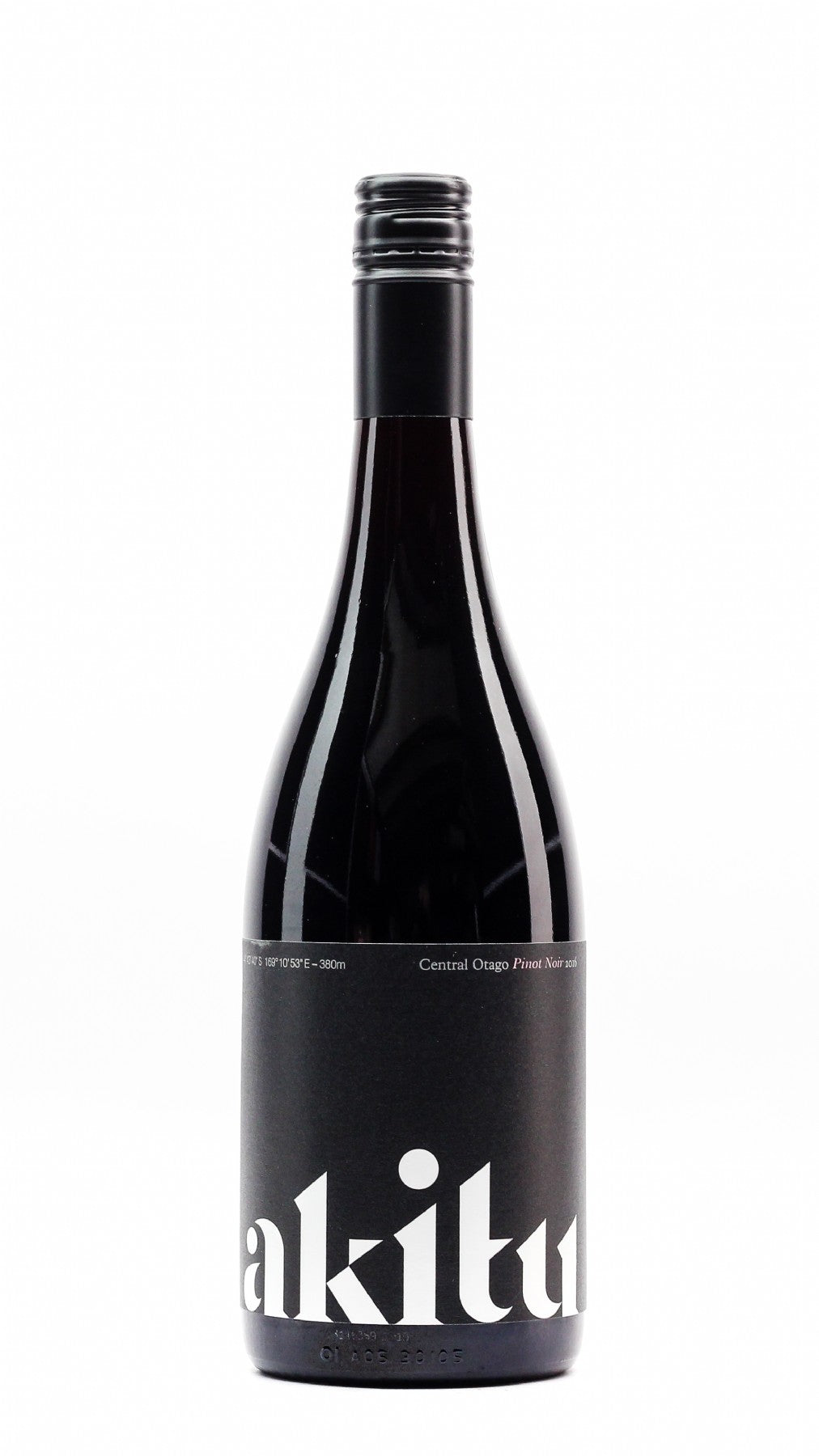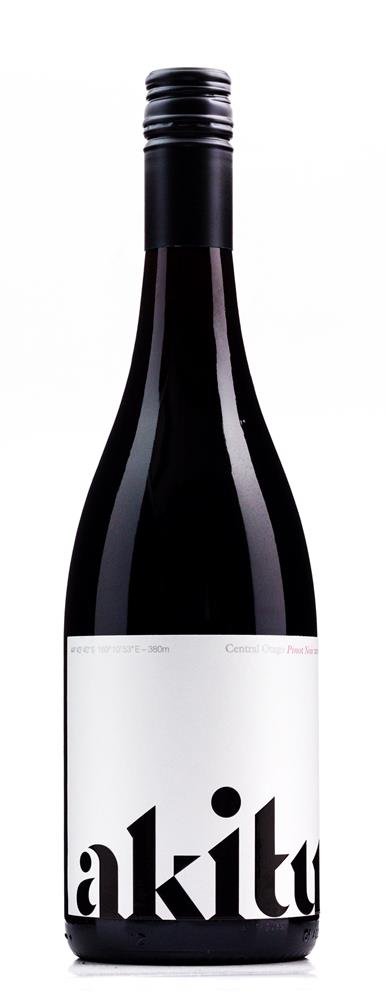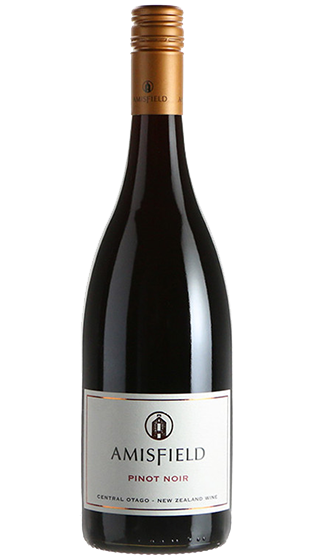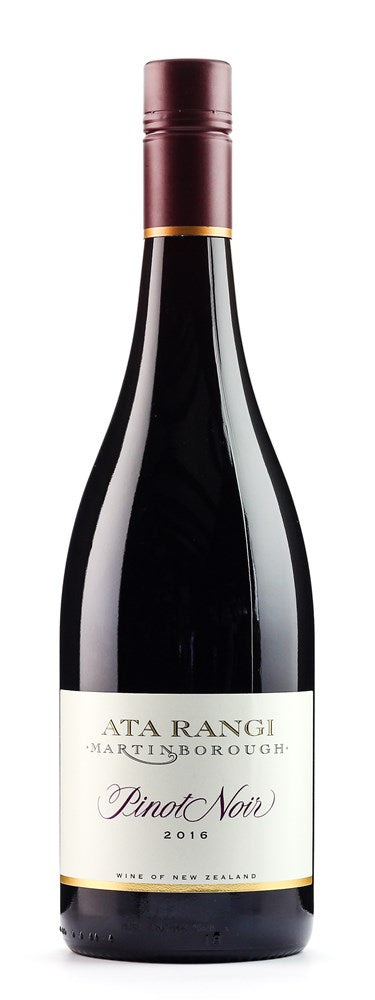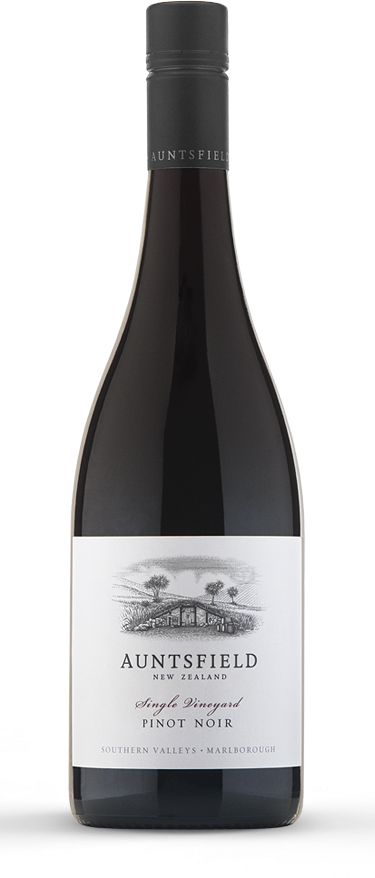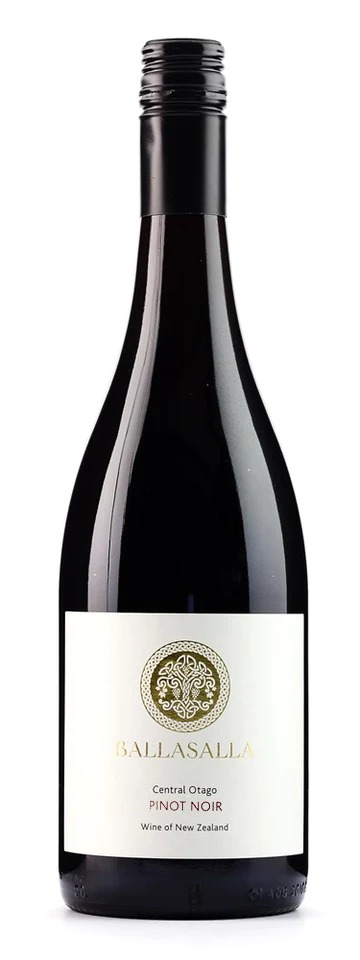293 products
293 products
Sort by:
Pinot Noir
Pinot Noir is king and Chardonnay is queen of the Akarua winery in Bannockburn where 78% of the wines made are Pinot and full of appealing plump red plum and ripe cherry flavours, leading into a beautifully structured, full bodied wine with a long, silky finish.
The Maori word Akarua translates to two vines and is the name chosen by Sir Clifford Skeggs, who planted Pinot Noir and Chardonnay on his terraced vineyard in Bannockburn. Last year, he sold the vineyard and winery to the Edmond de Rothschild Heritage group which is continuing the brand and its great wines.
Pinot Noir is king and Chardonnay is queen of the Akarua winery in Bannockburn where 78% of the wines made are Pinot and full of appealing plump red plum and ripe cherry flavours, leading into a beautifully structured, full bodied wine with a long, silky finish.
The Maori word Akarua translates to two vines and is the name chosen by Sir Clifford Skeggs, who planted Pinot Noir and Chardonnay on his terraced vineyard in Bannockburn. Last year, he sold the vineyard and winery to the Edmond de Rothschild Heritage group which is continuing the brand and its great wines.
Akitu A1 has all the bells and whistles of great Pinot Noir with seductive red floral and fruity aromas leading into a full bodied, silky and structured wine with 40% whole bunch fermentation and five different clones of Pinot Noir adding complexity. The dominant clone in the blend is Abel (a clone is a variation of a grape variety), which lends this Pinot its impressive structure and a silky mouthfeel. It goes without saying that it takes a warm year and ripe grapes to include a high proportion of whole bunches in the fermentation tank, stalks and all. This wine benefits from its high portion of whole bunches and is possibly the best A1 from Akitu yet. A modest 20% new French oak was used to mature the wine. This lends it weight, smoothness and a soft mouthfeel while allowing the fruit to remain in second place after the charry complexity.
The home of Akitu
Andrew Donaldson planted his vineyard with 100% Pinot Noir in 2002 and has since developed three distinctive styles of wine from this great red grape variety. Two reds (Akitu A 1 and Akitu A2) lead the production while a Pinot Blanc is now part of the high quality stable of wines from this producer.
Donaldson employs winemaker P J Charteris to make the wines.
At Mt Barker, in New Zealand's South Island, in a high glacial valley of sunshine and rain shadow on the edge of the earth, each season leave its own vivid imprint on our vintage. Extreme temperature variations, alpine air, altitude, adversity... all the wild elements of this exhilarating land combine in a Pinot Noir of great quality from the world's southernmost wine region.
Akitu A2 Pinot Noir is an approachable and complex Pinot Noir made from three different Pinot clones which receive 35% whole bunch fermentation and a modest 7% new French oak in the maturation process. This makes for a smooth but subtle softness in a lush Pinot, which Akitu owner Andrew Donaldson suggests matching with Peking duck pancakes. Hear hear. Any duck would flatter this wine?s lush flavours, for that matter. Volumes: 1096 cases were produced and the wine was bottled on 19 March 2020.
The home of Akitu
Andrew Donaldson planted his vineyard with 100% Pinot Noir in 2002 and has since developed three distinctive styles of wine from this great red grape variety. Two reds (Akitu A 1 and Akitu A2) lead the production while a Pinot Blanc is now part of the high quality stable of wines from this producer.
Donaldson employs winemaker P J Charteris to make the wines.
At Mt Barker, in New Zealand's South Island, in a high glacial valley of sunshine and rain shadow on the edge of the earth, each season leave its own vivid imprint on our vintage. Extreme temperature variations, alpine air, altitude, adversity... all the wild elements of this exhilarating land combine in a Pinot Noir of great quality from the world's southernmost wine region.
Amisfield wines began life on the shores of beautiful Lake Hayes, which remains home to this brand's cellar door and restaurant while the majority of grapes grown for these wines are now in the Cromwell Basin, most notably in Pisa which is where the winery production takes place. Ths wine is made from hand harvested grapes, which are treated to a natural ferment (no added yeasts) with approximately 10% whole bunchclusters added and maturation for 15 months in 20% French oak. This Pinot Noir is dry, full bodied and smooth with elegant spicy notes. It drinks well now and can definitely age well for the medium to long term; up to and beyond 10 years.
Commercial notes
A vibrant ruby red hue in the glass, this full bodied and expressive Pinot Noir from Nelson displays aromatic layers of dark fruit, bright cherry and subtle savoury oak. Richly textured and concentrated, the palate delivers intense dark berry fruits, black plum and subtle earthy notes. Elegantly balanced with smooth tannins and hints of spice, this generous wine leads to a long and lingering finish.
The grapes for this single vineyard Nelson wine are hand-harvested before being brought over to our modern winery located in Marlborough’s Awatere Valley. Small parcels from individual blocks are lightly crushed and destemmed into stainless steel open-top fermenters with minimal pumping or handling. The must is then held cold for around 6 days before being slowly warmed and inoculated with yeast specifically selected by our winemaker. The fermentation is carried out at warm temperatures of up to 35°C, which combined with regular gentle cap plunging and an extended maturation period on skins allows for a gentle and balanced extraction of colour and tannin. At the end of the maturation period the wine is drained and pressed without settling directly to French oak barriques. Once the secondary malolactic fermentation is complete each batch is rigorously tasted and graded - with only the best barrels making it to the final blend. The resulting wine then cross-flow filtered without fining, before being bottled in late March 2016.
Grown entirely on our stunning Whenua Matua vineyard located in the Upper Moutere area of Nelson, the grapes for this wine gain their intensity and structure from the sites heavy clay soils and abundant sunshine. Our vineyard crew’s attentive canopy management–leaf plucking, shoot thinning, vine training aid in delivering clean, concentrated fruit to the winery at harvest. The 2014/2015 growing season in Nelson began with overall cooler conditions that lead to a cool and damp flowering period - resulting in a lighter crop throughout the blocks. Shot and fruit thinning was kept to a minimum due to the lighter crops, however some fruit thinning was required to avoid bunched overlapping and to improve air circulation and increase fruit exposure. Drought conditions from January meant that unlike most years we were unable to dry farm, and the blocks had to be irrigated. Meticulous vine management from our vineyard team kept the fruit disease-free, despite high pressure caused by mild night temperatures and high dew fall.
Deliciously spicy, aromatic red fruit are captured in this silky Pinot Noir from Astrolabe Wines, which is a blend of grapes from four Marlborough sub regions, the Brancott and Waihopai, the Awatere and Kekerengu on the southern coast of the broader region.
The grapes in this wine were fermented with wild yeasts in open top vats, including a portion of whole bunches to provide structure and add complexity to the pristine red fruit flavours in this wine. Wild yeasts and hot ferments are followed by aging in old French oak barrels where the wine gains its smooth mouthfeel and savoury flavours.
The story of Astrolabe
Diversity, history and family ownership are among the reasons to try the outstanding range of wines from Astrolabe, which was founded in 1996 in Marlborough by winemaker Simon Waghorn and his partner in life and wine, Jane.
Simon has forged a reputation for being one of New Zealand's most respected producers of aromatic white wines after winning an almost embarrassingly long string of awards for his Sauvignon Blancs. He has also forged a name for adventurously diverse winemaking - he produces dry flinty whites from the most southern vineyard in Marlborough at Kekerengu on the coast about an hour's drive south of Blenheim. He is the only winemaker to produce wines from here.
He is also one of the few in this country to make Albarino, Chenin Blanc and a consistently outstanding range of wines from the organically certified hillside sloping site that is the Wrekin Vineyard in Marlborough.
The winery remains family owned and is now run by two generations, including Simon and Jane as well as their adult daughters.
A portion of the proceeds of each bottle of smooth and spicy Crimson Pinot Noir goes towards Project Crimson; a native tree replanting project nationwide in New Zealand, which the Ata Rangi winery is involved in today.
This wine is dry, medium bodied and fruit-led with red and dark fruit flavours leading into toasted spice notes and a lingering finish. It's one of Martinborough's great gateway Pinot Noirs.
The name Ata Rangi is Maori for dawn sky and was chosen to portray the new beginning that the start of this winery represented for founder Clive Paton in the late 1970s.
Kotinga is one of four single vineyard Pinot Noirs made by Ata Rangi from 2020; a great year which was dry and warm with a long autumn and was also the first time single vineyard wines were produced in this way.
This bright fruit scented wine is made from the Dijon Pinot Noir clones of 115, 667 and 777, which give it aromas of cherry, red currant and plum stone, which set the scene on the nose. The palate opens with a flourish of supple tannins uplifted with fluid acidity. Flavours of grapefruit and juniper spread through to the end of the palate.
Aged in a 2280 litre foudre (very large oak barrel) instead of the traditional 228 litre barrique, to highlight and retain the bright crunchy qualities of Dijon clones grown on gravels. This is a delightful wine and unique expression of Martinborough that is playful now and will also reward cellaring.
This wine is one of the country's best Pinot Noirs, having won an extremely long string of awards and accolades over the decades, which both winemakers, Clive Paton and Helen Masters, attribute to, among other things, 40% of the wine being made from the Abel clone of Pinot Noir. This clone was famously (true story) brought in via a gumboot from a grand cru vineyard in Burgundy, France; the traditional classic home to the Pinot grape.
Abel brings structure and intensity to Pinot Noir, as does the climate in the Wairarapa, which heavily reduces potential yields at flowering time in spring, resulting in smaller bunch architecture and more intense flavours as a direct result.
This wine drinks well now and undoubtedly has a long life ahead for those with wine cellars - and willpower.
A New Zealand classic - for good reason.
The name Ata Rangi is Maori for dawn sky and was chosen to portray the new beginning that the start of this winery represented for founder Clive Paton in the late 1970s.
This is a beautifully silky smooth Central Otago Pinot Noir made entirely from estate grown fruit at a small vineyard in Bendigo, one of the warmest corners (and often the first to harvest) in Central Otago. This wine comes from one of the driest, most settled vintages, weather-wise, in the past five years, and those qualities translate through to an intensely aromatic Pinot, driven by fresh floral notes and ripe dark cherry flavours in a silky textured wine. This wine is great value and super tasty.
The name Ballasalla comes from a village on the Isle of Man where one of the winery's founders, Tim Kerruish, was born.



